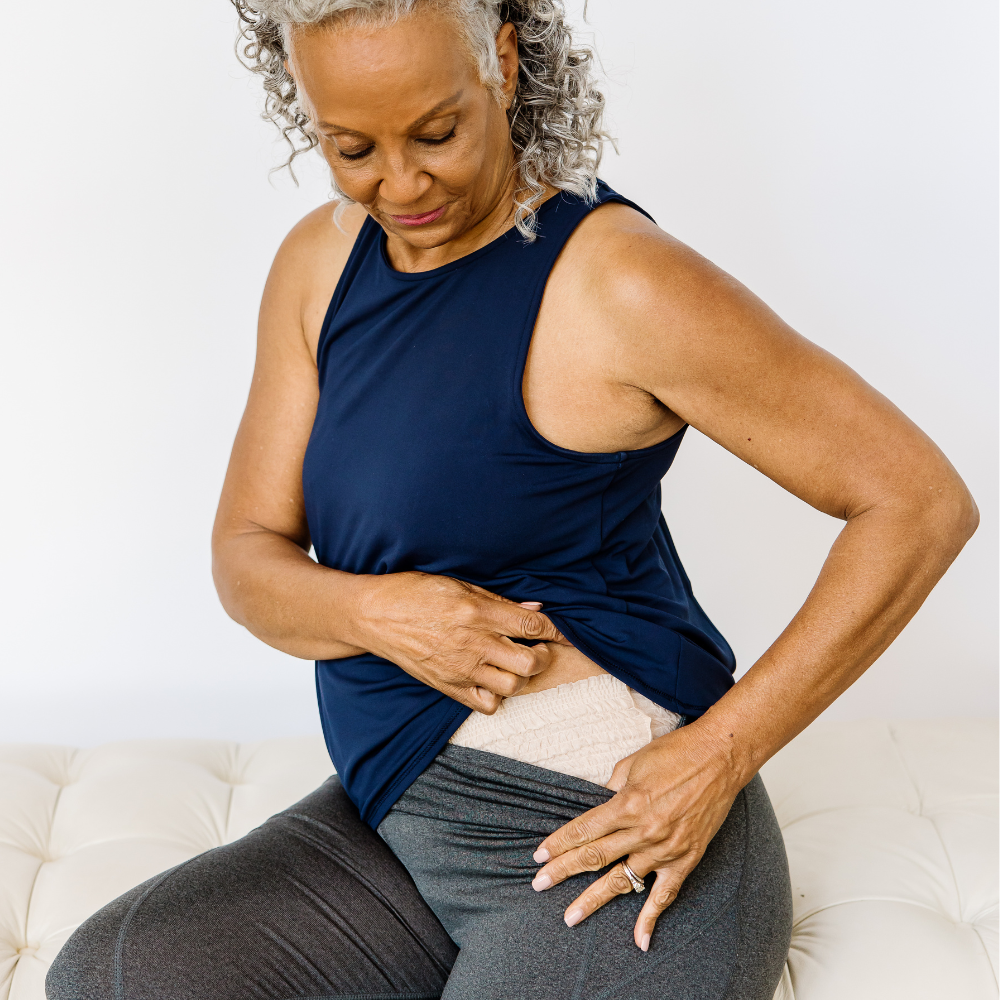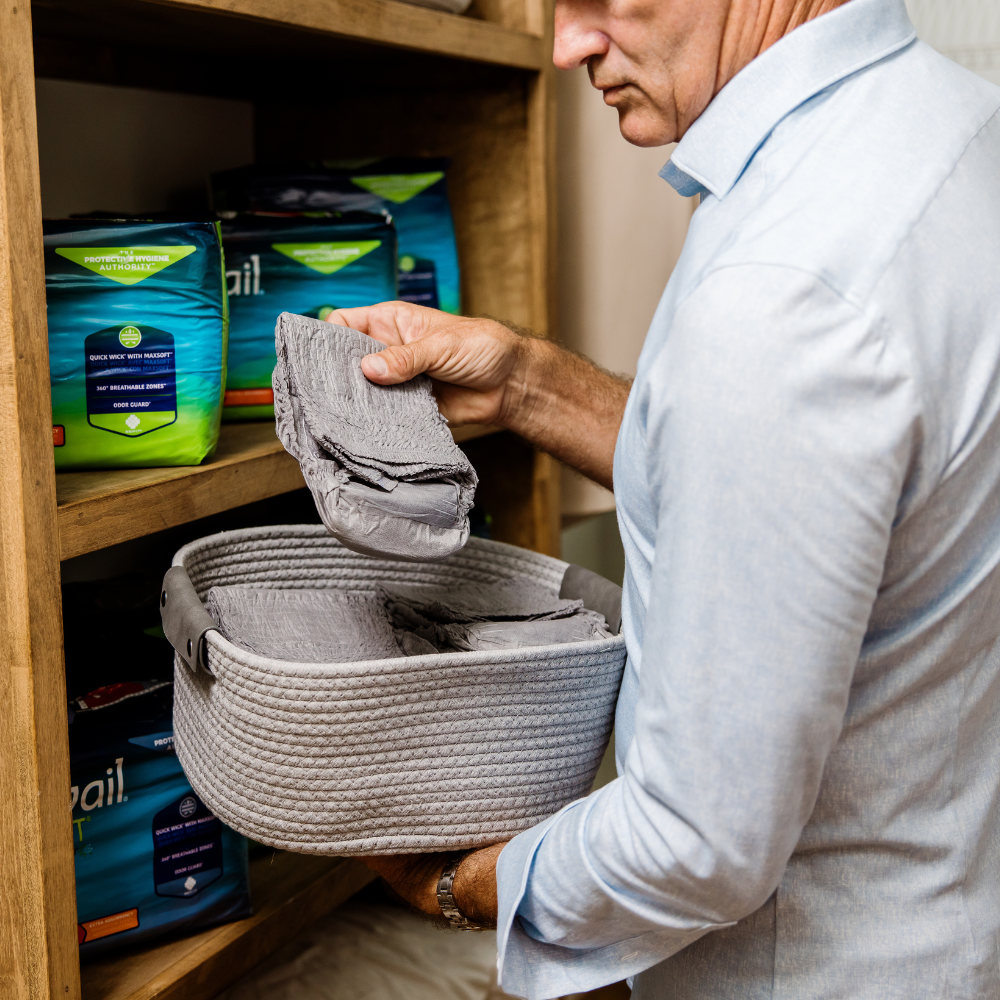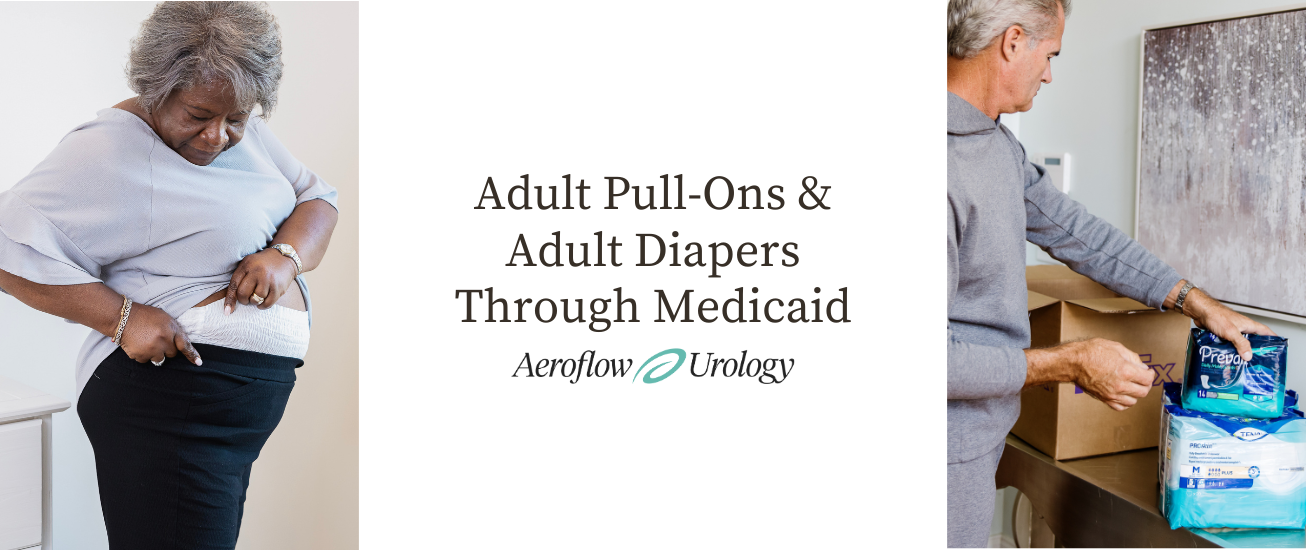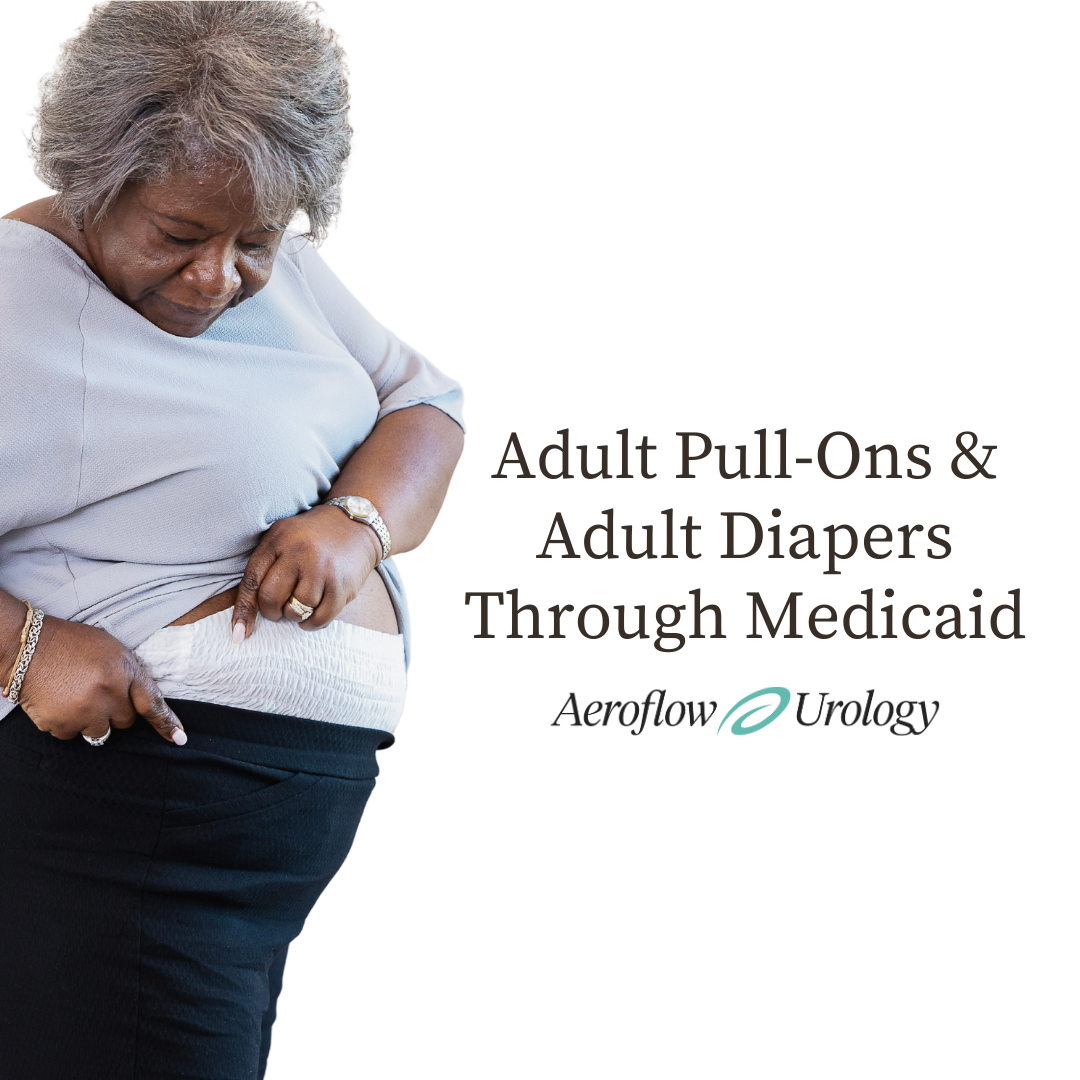How to Get Adult Pull-Ons & Adult Diapers Through Medicaid
This piece has been reviewed for accuracy by Mica Phillips, Vice President of Aeroflow Urology.
Incontinence is a common condition in adults, and Aeroflow Urology is here to help you get the supplies you need, like adult diapers, adult protective underwear, and more covered by Medicaid and other Medicaid Managed Care Plans.
To find out if you qualify for free adult incontinence supplies, fill out our secure Eligibility Form.
Check Your Eligibility
In Less Than 2 Minutes
Discover the adult incontinence products available through your insurance.
Table of Contents:
How to Get Adult Diapers and Pull-Ons Covered by Medicaid
Medicaid Requirements for Free Adult Diapers and Incontinence Supplies
What Health Conditions Cause Adult Incontinence?
How Is Adult Incontinence Diagnosed?
How to Qualify for Incontinence Supplies With Medicaid Using Aeroflow Urology?
Which Incontinence Products Are Covered by Medicaid for Adults?
Medicaid Health Plan Coverage
Medicaid may be able to cover incontinence supplies for you or your loved one if the products are deemed medically necessary.
While your or your loved one’s coverage is dependent on the state you live in and your individual health plan, many people who are diagnosed with incontinence may require proof of incontinence to have free supplies every month. This means that you will most likely need to make an in-office appointment with your healthcare provider. They will also be required to write you a prescription for incontinence that also lists your underlying condition.
Medicaid incontinence supplies include a range of products designed to manage bladder or bowel incontinence. These can include:
- Adult diapers (adult briefs).
- Pull-ups (protective underwear).
- Bladder control pads
- Underpads
- Gloves and wipes.
What Is Required to Get Adult Incontinence Supplies Covered by Medicaid?
In order to qualify for diapers, pull-ups, and more through Aeroflow Urology, you need 1 or a combination of the following items:
- A prescription from your healthcare provider within the last 12 months.
- You may be required to provide a letter of medical necessity (LMN) in addition to a prescription, depending on what your insurance plan requires.
- Your insurance company may require a copy of your medical history from your healthcare providers to ascertain any underlying conditions related to your continence issues.
- The quantity of products per month that you and your healthcare provider agree are required to best manage your continence issues (i.e. 3 protective underwear, 2 underpads, 1 bladder control pad).
We know that gathering the above information and dealing with Medicaid can be overwhelming, but our Continence Care Experts are specially trained to work with you to get all the information with ease. All you have to do to receive our help and free supplies every month is fill out our secure Eligibility Form.


Check your coverage for 100% free incontinence products now!
Check your coverage for 100% free incontinence products now!
What Health Conditions Cause Adult Incontinence?
There are a variety of underlying conditions that are causes of urinary incontinence and fecal incontinence in adults.
Click on a condition name for more details.
What Are the Types of Adult Incontinence?
There are several types of urinary incontinence (loss of bladder control) and fecal incontinence (loss of bowel control), each with its own unique symptoms.
- Urge Incontinence: Also known as overactive bladder (OAB), people with urge incontinence will feel a strong impulse to urinate that occurs suddenly, sometimes resulting in urine leaks. Conditions such as diabetes, multiple sclerosis, and others can contribute to this type of incontinence.
- Overflow Incontinence: People with overflow incontinence may not experience an urge to go, but still experience leaks caused by a weak bladder muscle or blockage when the bladder becomes too full.
- Stress Incontinence: If you sometimes experience urine leaks when sneezing, laughing, lifting heavy objects, or exercising, you may have stress urinary incontinence.
- Functional Incontinence: People with functional incontinence typically have a normal bladder and urethra function, but due to a mobility issue or physical or mental impairment, cannot reach the toilet in time to avoid urine leakage.
- Mixed Incontinence: Mixed incontinence occurs when patients have more than one type of incontinence.
- Fecal Incontinence: Unintentional loss of fecal matter.
How Is Adult Incontinence Diagnosed?
When you visit your healthcare provider, you may be asked questions about whether you experience leakage while laughing or sneezing, or how much caffeine or alcohol you drink. A bladder control diary can be incredibly helpful to have. Record the type and how much fluid you drink, how often you pass urine, the amount of urine you pass, and how many urine leakage episodes you experience.
Based on your medical history and symptoms, tests may be performed to rule out certain conditions that cause incontinence. Common tests include a cystoscopy to look inside of your bladder for abnormalities, measuring the pressure level in your bladder and stomach, a dipstick test to see if you have a urinary tract infection, a urodynamic test, and more.
Based on the results, your doctor will be able to create a treatment plan. Urinary incontinence treatment options vary based on the type and severity you are diagnosed with. Some options include simple lifestyle changes such as avoiding caffeine and spicy foods, doing kegel exercises to strengthen your pelvic floor muscles, or taking medication.
What Do You Need to Qualify for Adult Incontinence Supplies Covered by Medicaid With Aeroflow Urology?
To qualify for Medicaid coverage of adult diapers and other incontinence supplies, you'll generally need:
- A prescription: Your healthcare provider needs to write a prescription for the specific incontinence products you require.
- Proof of medical necessity: This may involve a letter from your doctor or documentation of a qualifying medical condition.
- State-specific requirements: Medicaid coverage varies by state, so it's important to check your state's guidelines.
Navigating Medicaid and gathering the required documentation can be confusing. Aeroflow Urology's Continence Care Experts are here to help you every step of the way. We'll work with you and your healthcare provider to:
- Obtain the necessary paperwork.
- File your claim with Medicaid.
- Ensure you receive your incontinence supplies on a regular basis.


Which Incontinence Products Will Medicaid Cover for Adult Incontinence?
Once you begin to experience bladder control problems, it is important to contact your healthcare provider. In the meantime, you can explore options for absorbent products to help manage symptoms. Incontinence supplies are typically covered by Medicaid and managed care plans for those with a qualifying diagnosis.
There are a wide variety of discreet incontinence products available with different features and levels of absorbency.
- Adult Pull-Ons: Also called protective underwear, may work better for those who need a moderate level of absorbency and can be pulled on and off, similar to standard underwear
- Bladder Control Pads: Sometimes referred to as an incontinence pad, these products are an option for those who need a product that is similar to a menstrual pad that can be secured to undergarments, but can hold more fluid.
- Adult Briefs: Adult briefs may work well for some who need an overnight product or one that can handle heavy bladder or bowel leakage. They are also commonly used by people with mobility issues who require the help of a caregiver as they are designed for easy application and removal.
- Underpads & Other Supplemental Items: There are also absorbent products like underpads or bed pads available to help protect bedding and furniture.
Disclaimer
Information provided on the Aeroflow Urology website is not intended as a substitute to medical advice or care from a healthcare professional. Aeroflow recommends consulting your healthcare provider if you are experiencing medical issues relating to incontinence.




